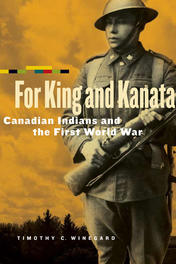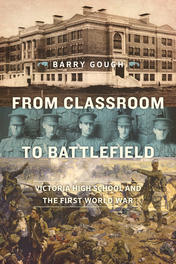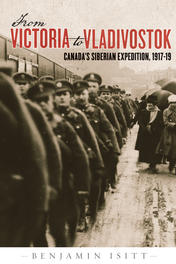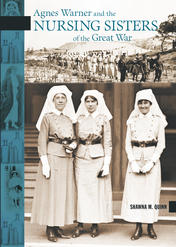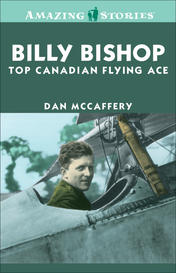World War I
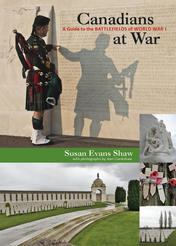
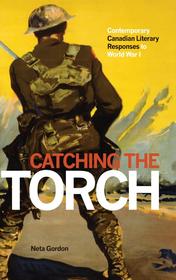
Excerpt from Catching the Torch: Contemporary Canadian Literary Responses to World War I by Neta Gordon
From the Introduction
David Williams asserts that the continued interest of Canadian writers in the First World War has nothing to do with the myth that our nation was born in the trenches. Daniel Francis states that “if a nation is a group of people who share the same illusions about themselves, then Canadians need some new illusions,â€Â87 which may very well be the case. That said, there is simply too much discourseâ€â€in history books, in the press, in literature, and in literary criticismâ€â€promoting precisely that myth about national origin for us to dismiss out of hand its current hold on Canadian imaginations. The question then becomes: What kind of Canada was born in the war, at least according to the new literary reimaginings of that series of events? In his conclusion to Death So Noble, Vance argues that for postwar Canadians, the
legacy . . . [was] not of despair, aimlessness, and futility, but of promise, certainty, and goodness. It assured Canadians that the war had been a just one, fought to defend Christianity and Western civilization, and that Canada’s sons and daughters had done well by their country and would not be forgotten for their sacrifices. To these great gifts, the myth added the nation-building thesis. By encouraging people to focus their thoughts on a time when the nation appeared to be united in a common cause, the memory of war could prove that the twentieth century did indeed belong to Canada.88
Unsurprisingly, this legacy has not been entirely sustained. Though most of the authors writing about the war to a much greater extent than Findley consider the specifically Canadian experience in the war, that focus has not resulted in a wholesale abandoning of the idea that many lives were destroyed due to the incompetence of military officers, the greed of war profiteers, and the stupidity of government officials. For example, Hodgins’s Broken Ground critiques the failures of the Soldier Settlement Act, while Urquhart’s The Stone Carvers and Cumyn’s The Famished Lover both disparage the work of the Department of Soldiers’ Civil Re-establishment in dealing with issues of veteran employment and pensions. Furthermore, the idea of “Western civilization†and a unified nation is interrogated, as works like Thiessen’s Vimy and Boyden’s Three Day Road consider the previously marginalized stories of francophone and First Nations participation, while Broken Ground, The Stone Carvers, and Unity (1918) explore the motley of immigrant communities on the home front who try to make meaning out of war. The idea that the war “had been a just one†is, in a certain way, countered with depictions of war activityâ€â€whether on the battlefield or in field hospitalsâ€â€that almost uniformly portray horror, chaos, and the agonizing loss of life. Finally, many worksâ€â€most explicitly Swan’s The Deep and Poliquin’s A Secret Between Usâ€â€confront the possibility that those who participated in the war may indeed be either forgotten or, at least, remembered in ways that have more to do with the needs of the living than the acts of the dead.
Yet despite the ways contemporary Canadian First World War fictions affirm the general Western narrative associated with the fighting of the warâ€â€that it was a futile, costly, dreadful military exerciseâ€â€Vance’s seemingly hyperbolic declaration about “promise, certainty, and goodness,†also finds purchase. To be sure, the reconciling of competing narratives is often a delicate activity and sometimes a heartbreaking one, for authors and readers are faced with the impossible question: Was itâ€â€the horror, the chaos, the lossâ€â€worth it? Not one of the works I explore here culminates in pessimism or condemnation of Canada’s participation in the First World War, including works like Broken Ground, The Deep, and A Secret Between Us, all of which suggest that narratives that depend on collective remembrance are doomed to recede in cultural importance, given enough time, because the collective will eventually choose to remember something else. Most of the works in this corpus might even be called optimistic in their intimations that the Canada that is born in the First World War is populated by those given to seeking love, healing, and a sense of hope and obligation toward community. Many of the narratives this volume examines rehabilitate the figure of the father and/or a conception of productive masculinity; many follow in the tradition of early-twentieth-century home front novels by women to consider the value of female work, in wartime and beyond; many explore productive ways to think about communicating across cultural and experiential divides; and most conclude with a look to the future (which is now the present) and a sense of promise that is decidedly free from irony. Thus, the remembrance of the First World War that has emerged in the past decade or so reflects a desire not to destroy the illusions Canadians have or have had about themselves, but rather to re-examine how those illusions about the war, with all its attendant horror and misery and loss, might offer a space for conceptions of the best Canadian self to emerge.

